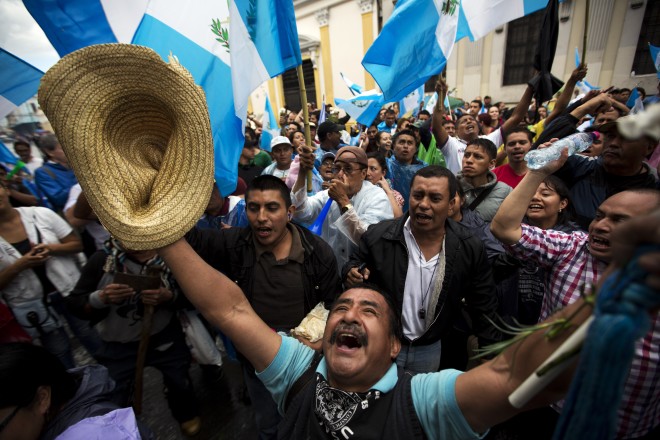
Dir.: Pamela Yates; Documentary, Guatemala 2017, 106 min.
500 YEARS is the final part of Pamela Yates Guatemalan trilogy, which started in 1983 with When the Mountains Tremble, followed by Granito: How to Nail a Dictator in 2011. The three chapters of 500 years explore the struggle of the indigenous Ixil Maya over the last half millennium, since South America was colonised by Spanish forces, destroying a culture much older than the one of the European barbarians.
Part one deals with the trial of General Rios Montt, which started in 2013. Montt had come to power with the help of the Reagan administration in 1982, and was responsible for the genocide in which 100 000 Maya citizens were killed and 45000 ‘disappeared’, just like in Argentina at about the same time. 626 villages were destroyed, the survivors mourn the death, often of their children, like the parents of Ines, who was killed aged 16, in combat against the military forces. Maya women were gang raped by soldiers; the filmmakers uncover the ruins of a former ‘interrogation centre’, were a special ‘Rape Room’ had been set up. The small town of Salquil Grande was burned down to the ground by the soldiers in 1982, but has been rebuilt since, and is now again a centre for resistance for Mayans. Montt, bearing an eerie resemblance to Auguste Pinochet, sits unmoved through his trial, whilst his lawyers try to sabotage the proceedings, even walking out. The witnesses, particularly the women, are heart breaking. Some can’t even look at Montt. But the general’s daughter, Zury Rios, is adamant that all witnesses are paid money to denounce her father. She soon sets herself up as the presidential candidate for the Viva Party. Interviews in the streets of Guatemala City prove her point of view: many citizens do not believe that genocide happened in their country.
Part two looks at the history of the country, starting with the foundation of a democratic Guatemala in 1944. Ten years later, Jacobo Arbenz, president of the Republic, who had instigated land reforms, was overthrown in a CIA coup, and later murdered in Mexico. An era of instability followed, escalating into a civil war, which lasted from1960 to 1996. By now, the Mayans had been forced from the most fertile land into the mountains. But since 2010, dam building and mining projects mean that they are driven from their land again with force. The gigantic infrastructure projects also threaten ecological turmoil.
Uprising’, the last chapter, is the most impressive: it shows the disposal of president Otto Perez Molina (a former Inspector General of the Armed Forces) from office, for corruption in 2014. Whilst Yates shows the Maya population, participating joyously in the demonstrations and blocking highways, the real reason for Molina’s resignation and imprisonment was that he had lost the support of the, mostly European, middle classes. They had looked on, whilst the health and education services of the Mayas had been cut by the government, but were in uproar when the same happened to them.
Nevertheless, 500 YEARS ends on an uplifting note, when the new generation of Maya fighters let fly a huge, multi-coloured kite in their mountain village: “When we die, we die in peace, because of the struggle we have been in in”. Unfortunately for them, the new president, Jimmy Morales (a former TV comedian), who was elected in 2015 with a majority of 67%, has denied that there ever was a genocide of the Mayans.
Shot mostly on eye-level by DoPs Melle van Essen and Rene Soza, 500 YEARS is a sobering history lesson. It is also a structural triumph, gathering all the information in 106 minutes. Roger C. Miller’s score is, appropriately, melancholic. A true milestone.
SCREENING DURING HUMAN RIGHTS WATCH FILM FESTIVAL |
https://youtu.be/jSZLszYAjOw